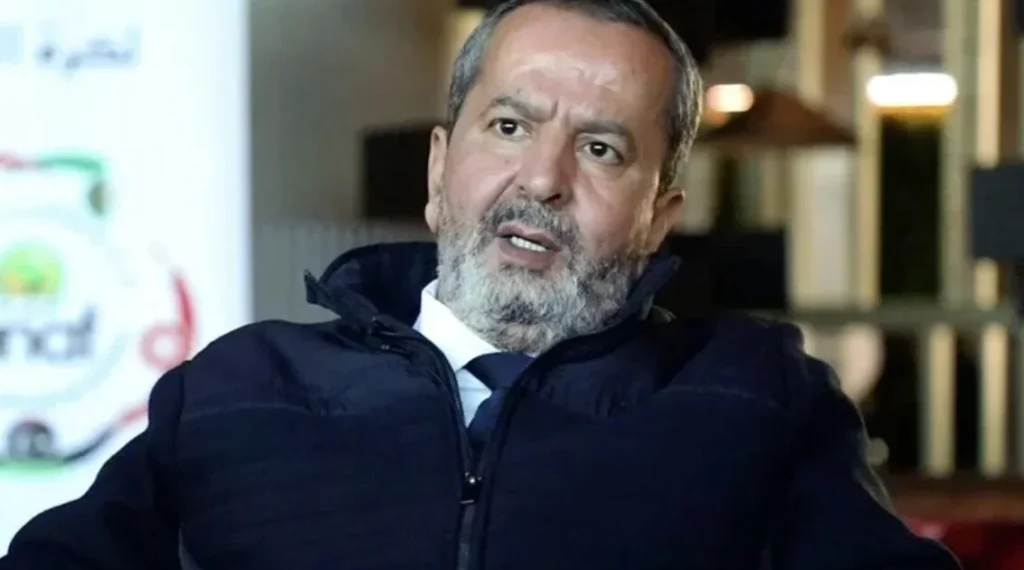Abdelhakim Al-Shalmani, the President of the Libyan Football Federation, announced his resignation during a recent meeting of the Federation’s General Assembly. His decision, which was officially made known on Sunday, indicates growing dissatisfaction and challenges within Libyan sports administration. Al-Shalmani expressed his desire to step down rather than be associated with the failures in Libyan sports, as reported by The Libya Observer. Throughout his address to the assembly, he acknowledged the significant difficulties faced during his tenure and emphasized gratitude towards his colleagues. He also mentioned that he has a commendable history within international, Arab, and African football federations, asserting that his contributions should not be overlooked despite the current precarious state of Libyan football.
Amid Al-Shalmani’s resignation, tensions have escalated regarding the treatment of the Nigerian national football team. The team faced severe difficulties upon their arrival in Libya for an important Africa Cup of Nations qualifier, experiencing what officials described as “inhumane treatment.” Specifically, they were detained at an abandoned airport for more than 15 hours, leading them to refuse to participate in the upcoming match due to safety concerns. Key representatives from the Nigerian Football Federation confirmed that the players had collectively decided against playing and were consequently making arrangements to return home. This incident highlights significant logistical issues and underscores the precarious nature of sports events in Libya.
In response to the uproar over the Nigerian team’s treatment, the Libyan Football Federation issued a statement to clarify the events, emphasizing that the prolonged delay at Al Abraq International Airport was solely due to routine logistical and air traffic difficulties, rather than any malicious intent. The Federation firmly refuted any suggestions of sabotage or foul play associated with the incident, aiming to alleviate the growing tensions. They insisted that there was no deliberate wrongdoing in the way the Nigerian team was treated, hence seeking to mitigate the narrative of hostility surrounding Libyan sports.
Despite these efforts at damage control, the situation continued to escalate in severity. Reports emerged that the Nigerian players and officials were preparing to leave Libya, prompting reactions on social media from both teams and bystanders. One notable update came from a sports enthusiast, Pooja Media, who announced via social media that the Super Eagles would be returning to Nigeria. This was later confirmed by a player, Bruno Onyemaechi, who commented on his relief at escaping the troubling situation. Such developments indicate a broader trend of dissatisfaction and highlight strained relations between the Libyan Football Federation and international teams.
Al-Shalmani’s departure and the crisis with the Nigerian national team represent a moment of reckoning for Libyan football, affording an opportunity for reflection and potential reform. As the outgoing president emphasized his contributions to the sport, it remains to be seen how his resignation will affect Libyan sports moving forward. The ongoing challenges faced by the federation create an urgent need for new leadership and strategies to restore international confidence in Libyan football and ensure proper treatment for visiting teams in the future.
In conclusion, Al-Shalmani’s resignation amidst the crisis with the Nigerian national team has put Libyan football under the microscope, raising critical questions about governance, safety, and operational efficacy within the sport. While the Libyan Football Federation seeks to distance itself from accusations of misconduct or neglect, the pressing need for reforms is evident. The tumultuous events underline the necessity for establishing a more reliable framework to handle international matches, thereby fostering a safer and more hospitable environment for visiting teams. As Libyan football navigates through this turbulent period, it stands at a crossroads where the actions taken in the near future could significantly alter the landscape of the sport in Libya.














